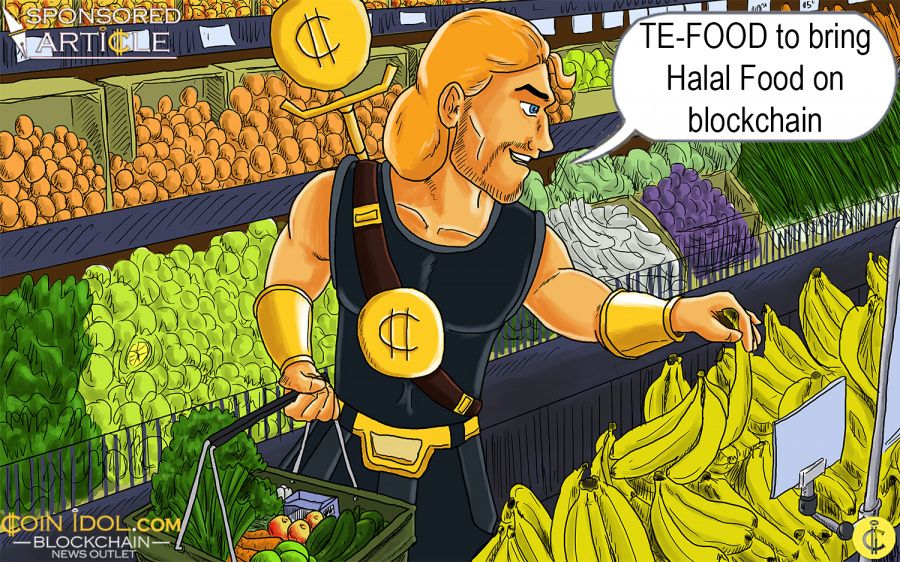Decentralized Food Traceability Company TE-FOOD To Bring Halal Food On Blockchain With British HALAL TRAIL

Halal food is a major industry today. Primarily consisting of meat and drinks, the Halal food market is expected to reach $2,550,000,000,000 in trade by 2024, serving Muslims all over the world.
Permissible In Islam
Halal is an Arabic word that means permissible. Muslims have a strict code on what type of food sources can be used and how food is to be prepared. This strict code is an integral part of the Islamic faith and more than 2,000,000,000 Muslims in the world follow the code.
People of the Islamic faith make up more than quarter of the world’s population. As such, the Halal food market is of significant size in the global food industry.
TE-FOOD: Blockchaining Halal Food
One of the biggest issue in Halal industry today is the traceability of the product, especially in countries and localities where they are not a majority. Many food suppliers do not stock halal food, due to the special and strict requirements, making it infeasible. Muslims are a very conscious consumer group in food and are always seeking ways to verify the food they eat.
There are a number of Halal certification bodies around the world, but these are limited in their ability to ensure that food is Halal. They can only verify manufacturers and delivery companies during their audits. A real time and constant check is the need of the hour.
TE-FOOD is a decentralized food tracing company that offers food businesses a complete and full traceable solution. Using blockchain, it allows the food industry to keep check of every material that will be used as ingredients to the final delivery of the finished product.
Operational since 2016, TE-FOOD has more than 6,000 clients and the company already has big food industry names in its portfolio of customers, such as CP Group, Big C, AEON and LOTTE Mart.
Partnering With HALAL TRAIL
UK based HALAL TRAIL is a Halal food company that is expanding its operations worldwide. In its effort to provide a complete end to end halal food solution, it has partnered up with TE-FOOD to give supply chain companies a complete and verifiable traceability of Halal food, from the type of animal from a farm, to its zibah (ritual method of slaughtering), packaging and final delivery to consumers.
Consumers and users will be given satisfaction that the meat and other food products they will be acquiring will be in accordance to their faith. With blockchain, the concerning data will be permanently a part of the record, that cannot be tampered with and is viewable via a mobile app.
HALAL TRAIL will be starting two test projects in June 2018, utilizing the services of TE-FOOD, to track poultry and mutton in the UK cities of Lancaster, Manchester and Tunbridge Wells.
Using this as a testbed, the companies hope to expand the blockchain traceability to a global level, allowing any consumer to verify the halal factor of the product they wish to buy from their local grocery stores.
For more information on the decentralized food tracing service, visit their website.
Disclaimer. This article is paid and provided by a third-party source and should not be viewed as an endorsement by CoinIdol. Readers should do their own research before investing funds in any company. CoinIdol shall not be responsible or liable, directly or indirectly, for any damage or loss caused or alleged to be caused by or in connection with the use of or reliance on any such content, goods or services mentioned in this article.
Price
Price
Price
Price
Price

(0 comments)